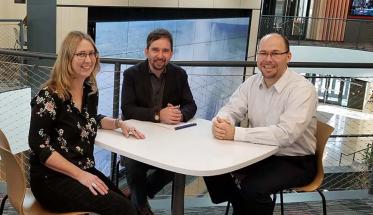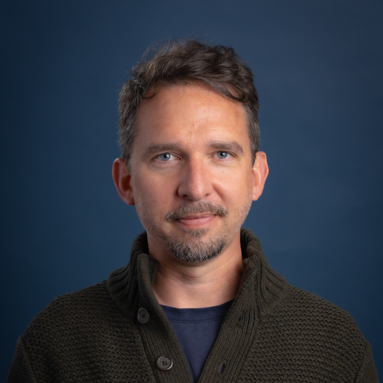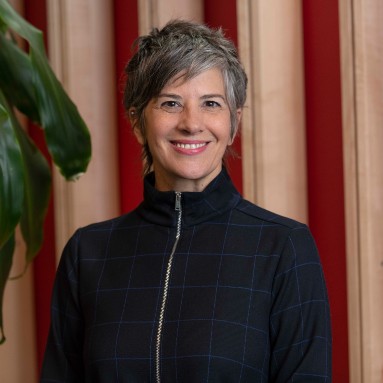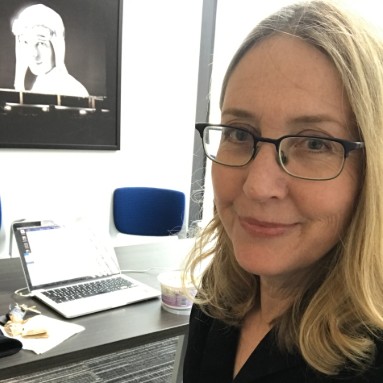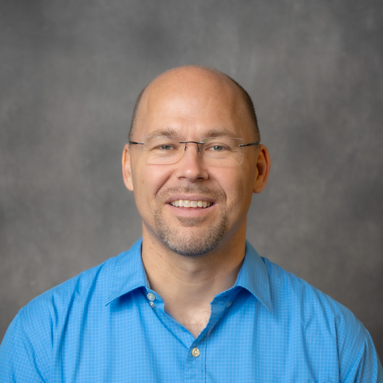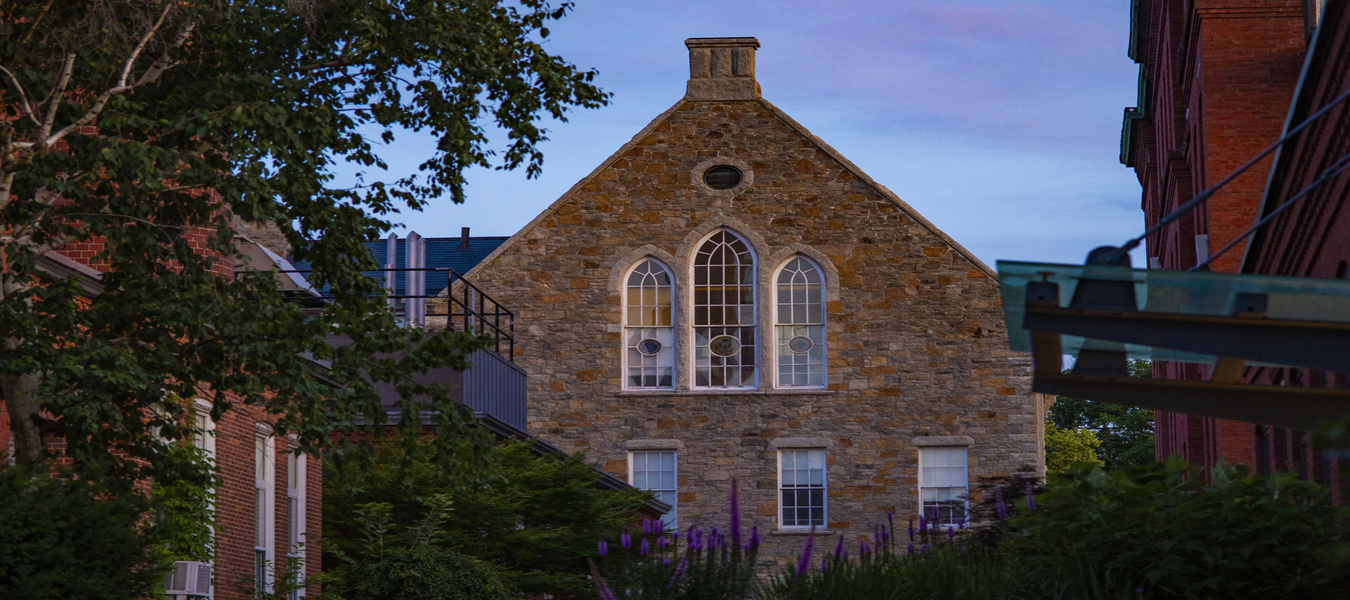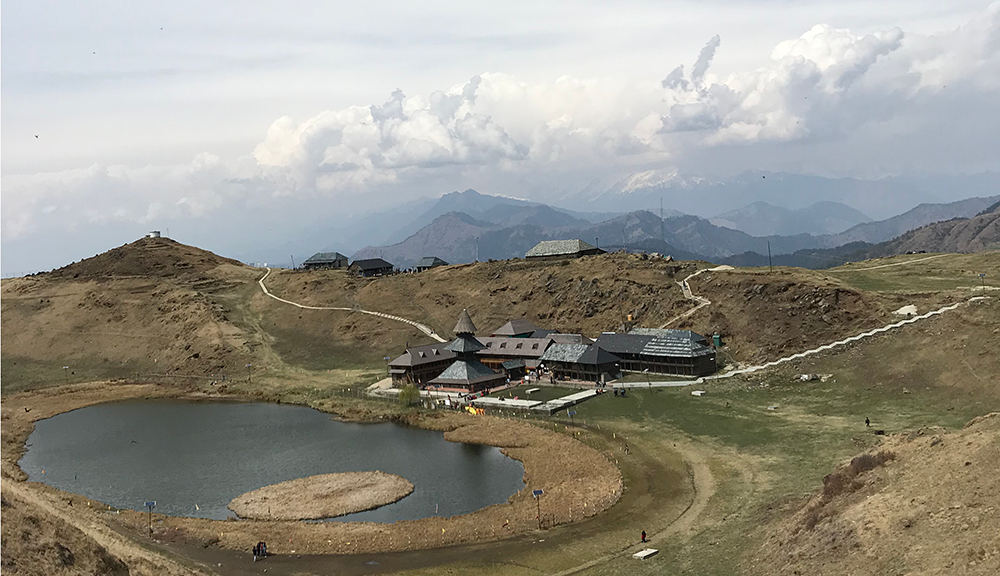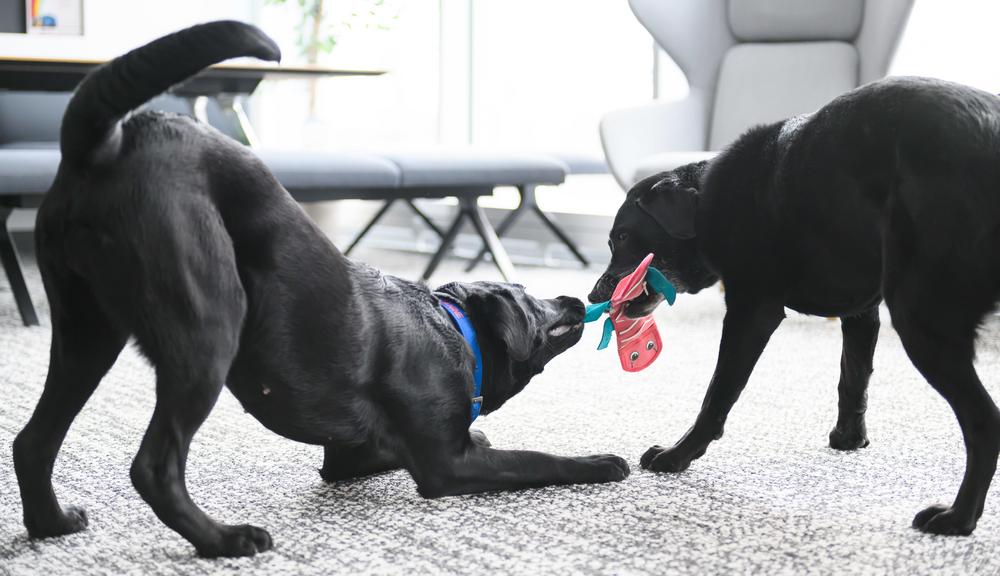The new Global Lab in the Foisie Innovation Studio is already opening doors to cutting-edge research with significant impact. With various media equipment and collaborations available, the Lab’s top goal came to life as a Fellows-in-Residence program launched even as A-Term began.
A collaborative effort, the program allows WPI faculty the time and space to explore research projects and ideas on a deeper level and without the typical distractions that come with a full teaching schedule.
During this pilot year, five global fellows will occupy the space on a rotating basis, with generally one fellow in residence per term, says Steve McCauley who co-directs the Global Lab with Leslie Dodson. Eventually, the Lab may support fellows over the summer as well.
This year, Fellows Ingrid Shockey and Andrew Trapp have found the program’s benefits invaluable to advancing their work.
“When the idea of the media lab came out I was so happy because when you add these resources to the work we all we do here at WPI, it becomes a whole new ballgame,” says Shockey, the inaugural fellow. “The Global Lab has the potential to amplify the research of the Fellows, as well as student or faculty projects across the university.”
Many at WPI are familiar with the idea of visiting faculty who spend time in residence, but few institutions offer the same opportunity to in-house faculty. The novel set-up builds interdisciplinary relationships on campus while giving faculty a chance to explore news ways of communicating and sharing their work.
“With this opportunity, I have access to things I want to do but haven’t done...I don’t know if I would be able to do this without the Global Lab.” -Andrew Trapp
Faculty and Global Lab staff collaborate with department heads to work out course schedules so fellows can devote full-time or nearly full-time hours to their fellowship project. Faculty members have the option of replacing one course for the fellowship.
Fellowships are open to all faculty, as they each will bring different viewpoints and experiences to enhance the Global Lab’s impact, says McCauley. Using the resources to enhance global interactions and communications is a significant part of the Lab’s goals, but the options for doing so are varied.
Shockey’s work focuses on climate change stories and inviting people around the world to relay their personal experiences. “When we look at climate data, we don’t feel it,” says Shockey, who has been in residence for A- and B-Terms. “Fundamentally, our lives aren’t changing too much in Worcester. In places where livelihoods depend on climate, they are feeling it and in many different ways.”
Shockey and her students map global climate stories using the equipment and a thorough understanding of the ethics behind responsibly documenting another’s story. Previously, students recorded stories during IQPs in India and New Zealand with Shockey, but, she says, they didn’t have a good way to talk about the work or the potential the work might have to impact others’ projects. “The Global Lab is a gateway to do that,” she says.
After a brief training with Shockey and the Lab directors, an IQP team in Iceland recently produced an inspiring climate change clip that reaffirmed the value of the Lab’s impact. Eventually, Shockey envisions installations or even using virtual reality in her work, something she never would have had the opportunity to do without the fellowship.
Trapp’s residency will last the seven weeks of B-Term. Using this time, he will deepen his work on refugee resettlement using a computational tool he and his research team developed.
“With this opportunity, I have access to things I want to do but haven’t done,” he says. “I write academic papers, and I love that, but I am learning about storyboarding and podcasting here.” He says he is creating a video to help tell his research story—one that translates well using that medium. Using algorithms to improve refugees’ lives has significant human impact but isn’t always easy to explain without an engaging medium.
The partnership is welcome. “They have the facilities and I have work to share,” Trapp says. “I don’t know if I would be able to do this without the Global Lab. I’ve thought about doing a video, but it wouldn’t have been polished enough.” The video can be shared globally, showing the impact his technology has to better humanity.
Originating a New Program
The idea for the fellowships came out of discussions among a collaborative planning group, says McCauley. The team (with members from IGSD, GPS, IMGD, Gordon Library, the ATC, and HUA) discussed approaches to enhance the impact of faculty work, interests, and expertise in ways that will help empower all the Global Lab is doing to engage with partners worldwide.
“The capacity here is so high for doing extraordinary work, and for exposing students to what’s available. I don’t need to go anywhere else.” -Ingrid Shockey
Locating the fellows in the Lab is important says McCauley. “Part of the fellowship is being in the Global Lab space and seeing what comes up from collaborations here,” he says. “And I am curious to see how the Fellows might influence each other.”
Applications for Fellowships
Faculty members apply for a Global Lab Fellowship (the next call for applications will go out on December 7), and the guidelines are flexible, although projects that focus on creatively communicating and collaborating with partners around the world are especially relevant. “We invite them to do what they want to do,” McCauley says, “and encourage their creativity.”
As many IQPs and global projects address similar or related themes (such as education, sustainability, or urban planning), the information generated in the Lab will connect these themes. “This will help us learn to coordinate and synthesize that learning,” he says. For instance, work in at least three project centers is related to monitoring microplastics. As this work continues, the information can be correlated to build on findings from other corners of the globe.
“This is a key element to show and elevate impact and will help launch new initiatives,” says McCauley. “We have a wealth of experience and expertise we haven’t been able to show. There is so much going on around the world at the project center sites.”
Both Shockey and Trapp say their work in the Lab is only the beginning. With the new partnerships, knowledge, and inspiration, their research will continue with new direction. Remaining on campus for the fellowship was a bonus for both.
“The capacity here is so high for doing extraordinary work,” says Shockey, “and for exposing students to what’s available. I don’t need to go anywhere else.”
- By Julia Quinn-Szcesuil
